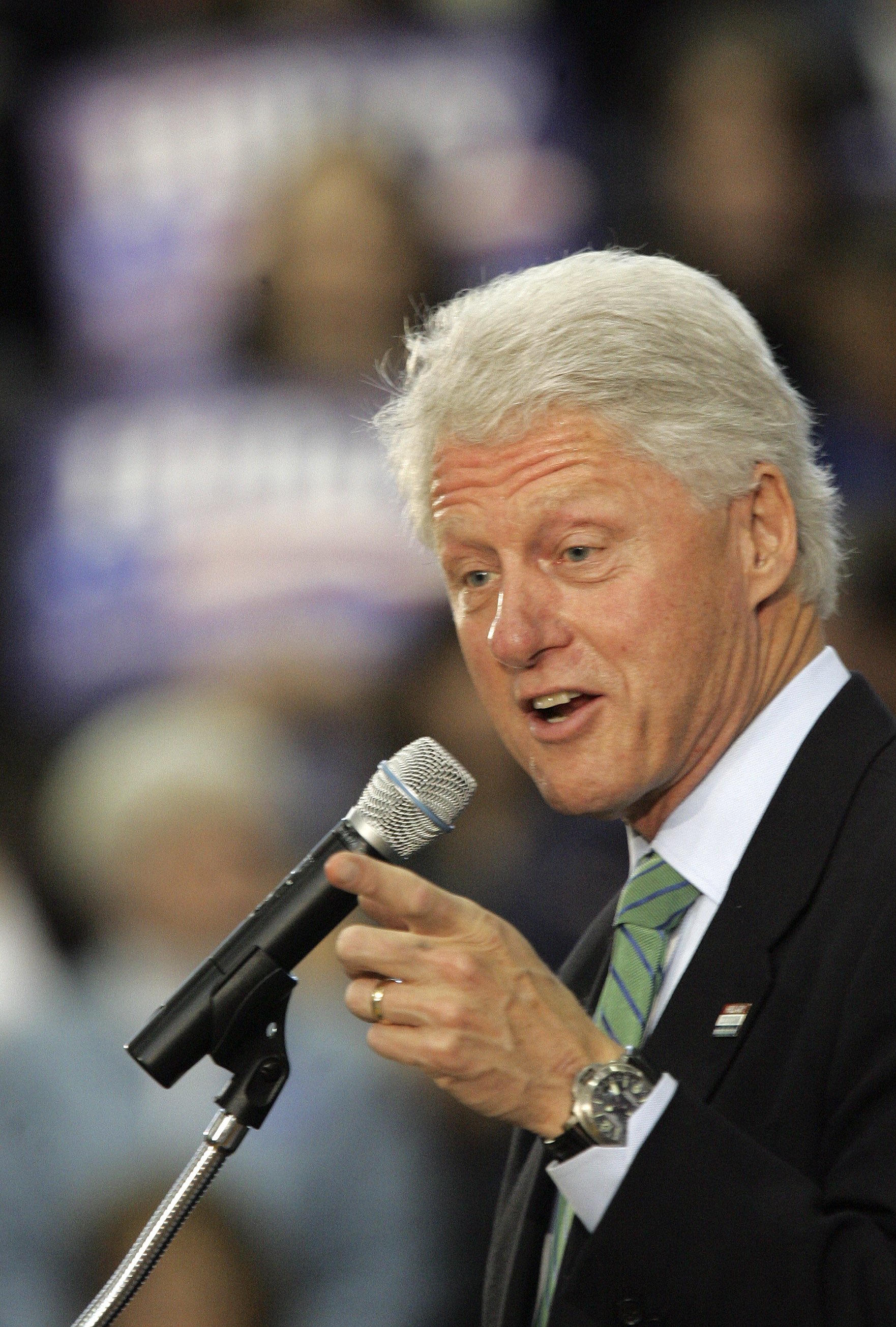
Bill Clinton’s popularity is reportedly at a record high. He would probably beat anyone — Romney or Obama — if running in 2012.
This suggests that most people still want a liberal Democratic President, only not Obama.
Yet this begs the question: Why was Clinton better than Obama?
Clinton raised income taxes on the wealth producers. Is this what made him successful? Income taxes are set to go up in January, and will surely go up if Obama is reelected. Yet this doesn’t seem to be generating an economic boom. You’d think if higher income taxes were so good for the economy, the mere prospect of returning to higher rates would be enough to get the economic engine of America running again.
In actuality, it’s tax cuts — especially on the wealthiest, those who pay the most taxes and who also produce the most wealth — that contribute to economic expansion. Clinton signed a capital gains tax cut when he was in office. He did so because, unlike Obama, he opted to negotiate with the Republican Congress. Obama never has, and never will, compromise on his principles of unfettered government growth and expansion.
Clinton proclaimed the era of Big Government was over. It wasn’t, and he never seriously meant it. But the fact he felt compelled to say it was reflective of a certain fiscal conservatism that existed during that brief time in the 1990s when Congress and the White House managed to produce a balanced budget, and later a surplus.
The majority of Americans who decide elections — the uncommitted or simply confused “middle” — haven’t, I suspect, thought this out. They think, “Boy, that Bill Clinton, he sure was smart. He was smarter than Obama. That’s why the economy was better then.”
But Clinton’s term in office was boom-and-bust. It started out bust, boomed for awhile, and then went bust again with the tech crash of 2000. Obama’s term has been totally one long bust, and getting “bustier” all the time. Reagan’s term in office was mostly boom. And Reagan was more determined about at least reducing regulation and taxes than Clinton ever was.
The point is: The success of presidencies has something to do with the policies. It appears that the more the policies move in the direction of smaller government and low taxes, the better off we are. The more decisively the policies move in the direction of government expansion, the worse things get. To be fair, George W. Bush — “Mr. Conservative” — actually was a Big Government conservative, no better than the liberal Clinton and possibly even worse (despite his fairly modest tax cuts). If you want to argue the case against capitalism, argue against Reagan, not Bush. Bush increased domestic spending as much as most Democrats (before Obama) would have.
Reagan was not perfect. That’s not my point. My point is that the direction we go in, on economics, matters. To hear a leftist Democrat talk, the only thing that can save a country is to increase taxes, nationalize industry and regulate everywhere you can. Both abstractly and in practice — thanks to the Obama years — we can plainly see that those policies only makes things worse. Communist and Western European socialist democracies learned that long ago, and now it’s America’s turn.
Most of all, no President — not Reagan, not Clinton, and certainly not Obama — ever created a single job. Jobs are created in the business world. Government’s only contribution lies in how much it stays the hell out of the way.
Why doesn’t it occur to anyone that maybe we need to go in the opposite direction? Not merely back to Reagan, but as far as we can possibly go in lowering taxes and dismantling or privatizing as much of the federal government as possible, leaving aside what we need for national self-defense?
What’s stunning to me is how the question is never asked. Leftists keep insisting that it’s bad to be ideological. Yet their ideology has set the agenda for both parties — with the possible exception of the Reagan years — for almost a century. And what do we have to show for it? A national debt of $16 trillion dollars and a government that does far too much at far too high a price, restricting the rights and freedoms of the private sector and individuals in the process.
We’re less and less the land of the free and the home of the brave. We’re more and more the land of the indebted and the home of the dependent. Our Big Government is doing everything it can to make us that way, and as more and more of us surrender and give in to the subtle poison of dependence on the state, the more statist our government becomes.
Be sure to “friend” Dr. Hurd on Facebook. Search under “Michael Hurd” (Rehoboth Beach DE). Get up-to-the-minute postings, recommended articles and links, and engage in back-and-forth discussion with Dr. Hurd on topics of interest.
